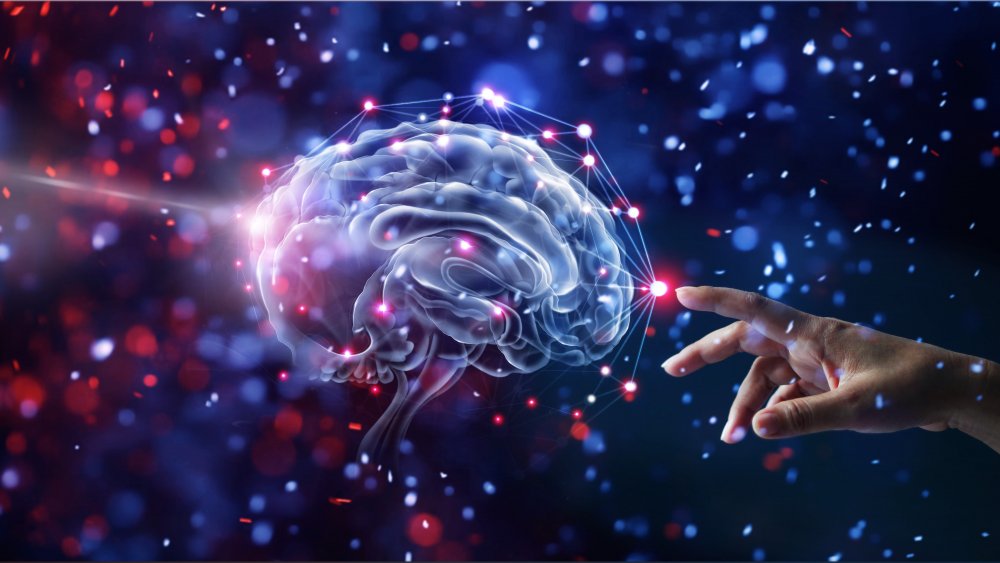New Study Shows How To Slow Brain Aging
Pretty much everyone would love to live a good, long life. However, the whole "not dying until you're really old" thing is a bit of a two-edged sword: Unless your brain manages to keep up with the rest of your body, your golden years probably won't be quite as cozy as you'd hope.
Scientists are well aware of the issue, and they're on it. As Kristen Rogers of CNN tells us, a new study by the good researchers at Columbia University's Vagelos College of Physicians and Surgeons has uncovered some potential tricks that you might use to keep your brain going as you age. Here are the good news: If the study is correct, it's perfectly doable for almost anyone. Here's the bad news: There's no magic brain-preserving pill or anything. Taking care of your brain requires you to actually (gasp) do something. But what? Let's find out!
Working out for a bigger brain
The study's author, Dr. Yian Gu, focused on the fact that at some point between ages 60 and 70, our brains slowly start shrinking, and the shrinkage starts impairing on our cognitive and processing abilities. By studying a group of over 1,500 old folks with varying levels of physical activity, from "rigorous" stuff like jogging and aerobic dancing to ""moderate" (cycling, swimming etc.) and "light" (walking, gardening, golfing and whatnot). She discovered that the seniors whose regular physical activities fell in the "rigorous" bracket had noticeably less brain shrinkage than couch potatos of the same age. Their brain volume was 1.4 percent bigger, to be precise. This is estimated to slow brain aging by roughly four years.
So, what's the catch?
Of course, it's not quite as simple as that. The study established no causal relationship between exercise and brain volume, and anyway, brain volume is just one "marker of success" for old-people-brain science, along with the ability to function daily and performance on cognitive tests. Also, Dr. Gu's study gathered its data from the subjects' own reports of their physical activity, so it relies pretty heavily on their ability to, you know, remember what they've done.
Still, it's an exciting avenue of research, and adds to the already existing evidence that our own actions can indeed affect our cognitive functions. Besides, at the end of the day, exercise is generally pretty good for you. So hey — why not take a run or at least a nice, brisk walk every once in a while? Go dancing, or get yourself a new trowel and take up gardening. Who knows, it might lead to a gracefully aged brain somewhere down the line.


